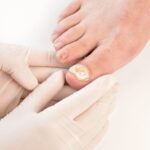Acne is a common skin concern that can have a range of causes, from hormonal changes to stress and even diet. However, one often-overlooked cause of acne is digestive problems. If you’re struggling with acne that doesn’t respond to typical treatments, it could be linked to issues within your digestive system. In this article, we’ll explore how digestive problems can cause acne and share practical steps on how to get rid of acne caused by digestive issues.
Understanding the Connection Between Digestion and Acne
The health of your digestive system plays a crucial role in your overall skin health. When your digestive system is not functioning properly, it can lead to inflammation and the accumulation of toxins, which may manifest as acne on the skin.
1. How Digestive Issues Cause Acne
Digestive issues such as poor digestion, gut problems, and liver overload can all contribute to acne. Here are some ways digestive problems can impact your skin:
- Poor Digestion Acne: When your digestive system struggles to break down food properly, it can lead to nutrient deficiencies, which affect skin health.
- Gut Related Acne: Imbalances in gut bacteria, often caused by an overworked digestive system, can lead to inflammation and acne.
- Overloaded Liver Acne: When the liver, which is responsible for detoxifying the body, becomes overburdened, it can contribute to skin issues such as acne.
Types of Acne Linked to Digestive Problems
Acne caused by digestive problems can appear in various forms and locations on the body. Understanding the type of acne can help identify its root cause:
1. Digestive Acne on the Face
- Small Intestine Acne and Large Intestine Acne on Face: Acne that appears on certain areas of the face may be linked to different parts of the digestive system. For example, acne on the forehead is often associated with the small intestine, while acne around the cheeks and jawline can be related to the large intestine.
2. Stomach Acne and Abdominal Acne
- Acne on Stomach and Abdominal Acne: Pimples, whiteheads, or blackheads can appear on the stomach due to digestive issues or other factors, such as sweat, heat, or friction.
How to Get Rid of Acne Caused by Digestive Problems
To effectively address acne caused by digestive problems, it’s essential to focus on both improving digestive health and supporting skin health. Here are some steps you can take:
1. Improve Your Diet for Better Digestion
A balanced diet that supports digestive health is crucial for preventing acne linked to digestive issues.
- Eat Fiber-Rich Foods: Consuming high-fiber foods like fruits, vegetables, and whole grains can promote healthy digestion and prevent constipation, which can contribute to acne.
- Include Probiotics: Foods like yogurt, kefir, sauerkraut, and other fermented foods contain probiotics that help balance gut bacteria, reducing inflammation and improving skin health.
- Stay Hydrated: Drinking plenty of water aids in digestion and helps flush out toxins that could contribute to acne.
2. Avoid Trigger Foods
Certain foods can exacerbate digestive problems and trigger acne flare-ups. Consider avoiding:
- Processed Foods and Sugars: These can contribute to inflammation and worsen both digestive issues and acne.
- Dairy Products: For some people, dairy can cause digestive distress and trigger acne.
- High-Fat Foods: Foods high in unhealthy fats can overload the digestive system, leading to skin problems.
3. Support Liver Health
A healthy liver is essential for detoxifying the body and maintaining clear skin.
- Detoxify with Antioxidants: Include antioxidant-rich foods such as berries, leafy greens, and nuts in your diet to support liver health and reduce acne.
- Limit Alcohol and Caffeine: Both alcohol and caffeine can stress the liver and contribute to acne. Reducing or eliminating these can help.
4. Manage Stress Levels
Stress can negatively impact both your digestive health and your skin.
- Practice Relaxation Techniques: Activities like yoga, meditation, and deep breathing can help reduce stress and support a healthy digestive system.
- Get Adequate Sleep: Quality sleep is crucial for skin repair and digestion.
Treating Acne Caused by Digestive Problems
While addressing the root cause is essential, there are also specific treatments that can help reduce acne caused by digestive problems:
1. Topical Treatments
- Gentle Cleansers: Use a mild cleanser to clean your face and body without irritating the skin.
- Non-Comedogenic Moisturizers: Choose moisturizers that don’t clog pores and exacerbate acne.
2. Over-the-Counter Medications
- Benzoyl Peroxide and Salicylic Acid: These ingredients can help reduce acne by killing bacteria and exfoliating dead skin cells.
3. Professional Treatments
- Consult a Dermatologist: If your acne persists, consider seeking professional advice from a dermatologist who can recommend treatments tailored to your skin type and condition.
Can Stomach Problems Cause Acne?
Yes, stomach problems can cause acne. Issues like indigestion, constipation, and a slow or overworked digestive system can lead to a build-up of toxins in the body, which may manifest as acne.
How to Get Rid of Stomach Acne
To address acne that appears on the stomach, consider the following:
- Practice Good Hygiene: Keep the area clean and dry to prevent the build-up of bacteria and sweat.
- Use Acne-Fighting Products: Topical treatments containing salicylic acid or benzoyl peroxide can help treat stomach acne.
- Wear Loose-Fitting Clothing: Avoid tight clothing that can cause friction and irritation, contributing to acne on the stomach.
Why Do I Have Stomach Acne? Causes and Prevention
Stomach acne can be caused by a variety of factors, including:
- Sweat and Friction: Wearing tight or non-breathable clothing can cause friction and trap sweat, leading to breakouts.
- Poor Diet: A diet high in processed foods, sugar, and unhealthy fats can contribute to digestive issues and acne.
- Hormonal Imbalances: Hormonal changes can also cause acne on the stomach and other areas of the body.
Conclusion
Acne caused by digestive problems can be challenging, but by addressing the underlying issues and following a balanced approach to diet, lifestyle, and skincare, you can achieve clearer skin. Focus on improving digestion, avoiding trigger foods, supporting liver health, and using appropriate acne treatments to manage and reduce breakouts. If your acne persists, consult a healthcare professional for personalized advice and treatment options.



